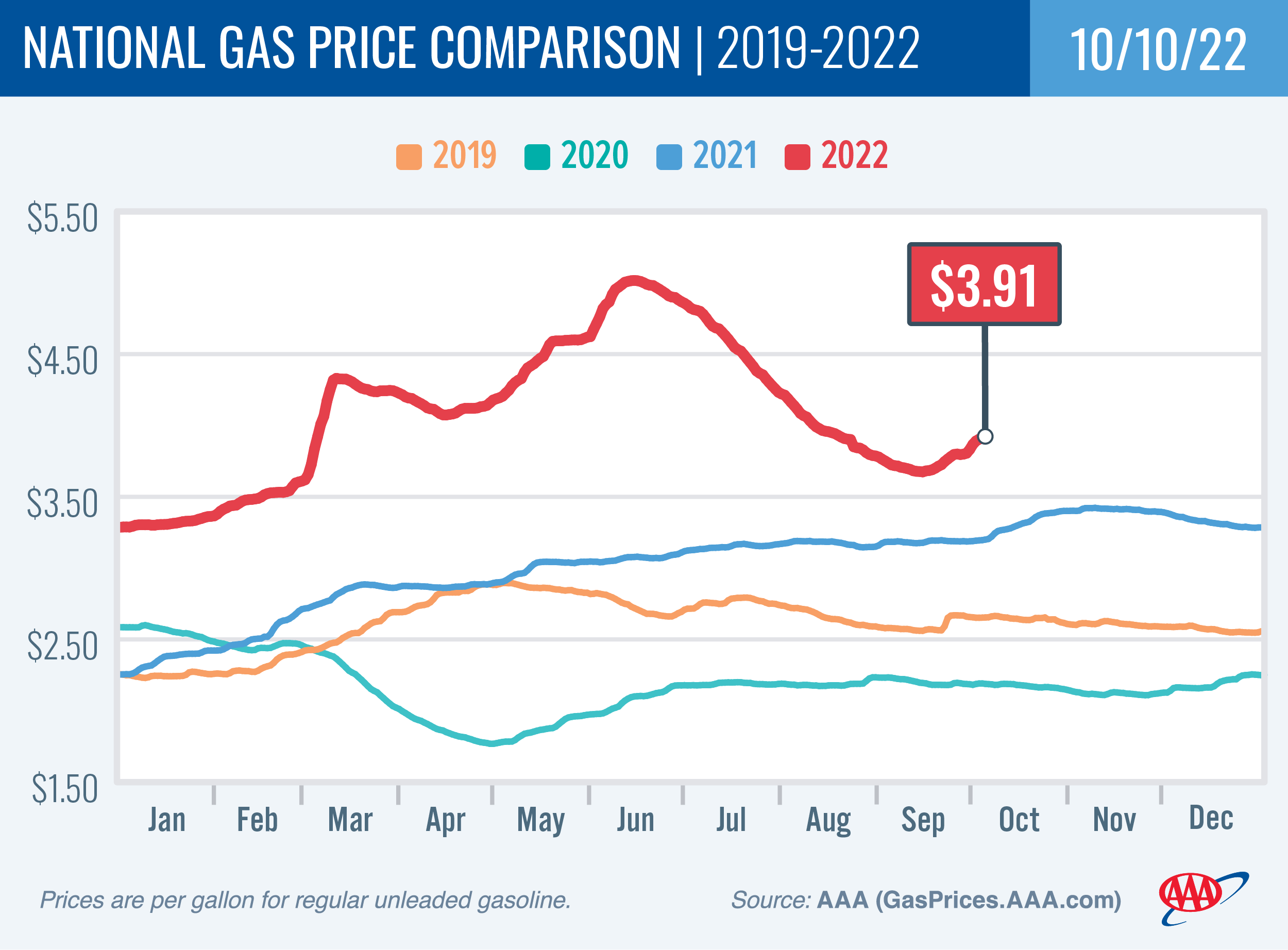Rising Demand and the Cost of Oil Reflected in Higher Pump Prices
Rising Demand and the Cost of Oil Reflected in Higher Pump Prices

OPEC+ recent announcement that the group of oil-producing nations would slash output by 2 million barrels per day led to the price of oil creeping above $90 a barrel for the first time in several weeks. A higher cost for oil usually means more expensive gasoline. Meanwhile, domestic demand increased as more drivers fueled up last week. The national average pump price for a gallon of gas rose 12 cents over the past week to hit $3.91.
"Gas prices in California are finally cooling off, as more refineries come back online after undergoing maintenance and the switch to cheaper winter blends takes effect," said Andrew Gross, AAA spokesperson. "High West Coast prices have played a major role in the recent climb in the national average for gas. Reversing this trend may help take some pressure off of pump prices."
According to new data from the Energy Information Administration (EIA), gas demand increased nationally from 8.83 million b/d to 9.47 million b/d last week. Total domestic gasoline stocks decreased significantly by 4.7 million bbl to 207.5 million bbl. High gasoline demand, amid tight supply, has led to higher pump prices nationwide.
Today's national average of $3.91 is 19 cents higher than a month ago and 65 cents more than a year ago.
Quick Stats
The nation's top 10 largest weekly increases: Maryland (+24 cents), Delaware (+24 cents), Illinois (+24 cents), Ohio (+23 cents), Louisiana (+22 cents), Tennessee (+21 cents), Indiana (+21 cents), Alaska (+20 cents), Mississippi (+20 cents) and North Carolina (+20 cents).
The nation's top 10 most expensive markets: California ($6.33), Alaska ($5.54), Oregon ($5.53), Nevada ($5.44), Washington ($5.40), Hawaii ($5.21), Arizona ($4.56), Idaho ($4.42), Illinois ($4.40) and Michigan ($4.35).
Oil Market Dynamics
At the close of Friday’s formal trading session, WTI increased by $4.19 to settle at $92.64. Crude prices increased last week after OPEC and its allies including Russia, known as OPEC+, announced intentions to cut crude production by 2 million b/d next month. Although crude prices have surged, the pricing impact may be short-lived as demand concerns continue to weigh on the market. For this week, crude prices could reverse course if the market continues to see indicators of weakening demand due to ongoing COVID-19 lockdowns in China and a slowdown in the economy as fears of recession grow, which could see crude prices decline due to falling demand. Additionally, EIA’s latest weekly report showed that total domestic crude inventories declined by 1.4 million bbl to 429.2 million bbl.
Drivers can find current gas prices along their route using the AAA TripTik Travel planner.



